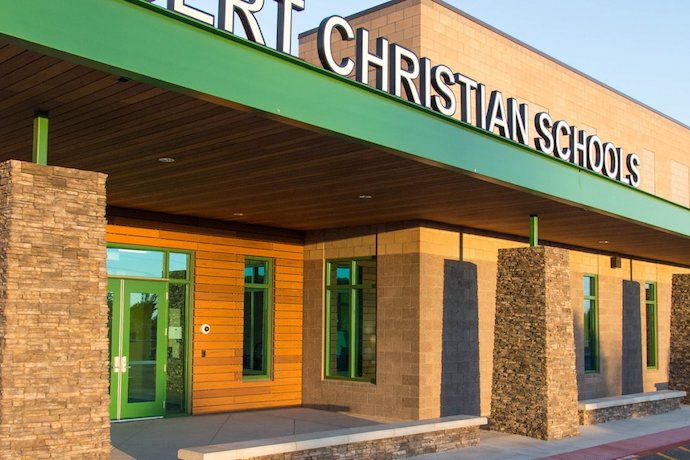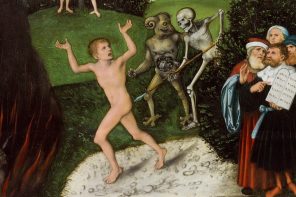Here on RD, I took a look at the legal case against exempting churches from public health measures back in March (remember March?), in the early days of quarantine. At the time, many blue state governors included religious gatherings in their shutdown orders, with the notable exception of Democratic Governor Gretchen Whitmer of Michigan, while Ohio’s Republican governor, Mike DeWine, went so far as to label church gatherings “essential” operations.
For help with my analysis in that piece, I consulted Nick Fish, President of American Atheists, who observed:
Even religious liberty advocates with expansive views of religious exemptions recognize that our government can limit gatherings at churches to protect lives. In the 1944 case Prince v. Massachusetts, the Supreme Court stated that ‘the right to practice religion freely does not include liberty to expose the community…to communicable disease.’
Although I am not a constitutional law expert, this seems to me a compelling reason to consider the issue settled in favor of those who oppose “religious liberty” exemptions from public health measures like social distancing.
Unfortunately, even as the federal government and red states have spectacularly failed to rein in the COVID-19 pandemic, right-wing Christians continue to engage in anti-mask agitation and to embrace related conspiracy theories—despite desperate pleas from prominent evangelicals invested in “respectability” to their coreligionists to stop spreading disinformation. Legal maneuvers from some white evangelical leaders attempting to gain “religious freedom” exemptions from state restrictions on religious gatherings also continue.
For example, John MacArthur—a pastor with a record of misogynistic statements who stands accused of covering up sexual misconduct at the Christian university and seminary where he remains chancellor emeritus—recently sued to overturn a ban on indoor church services in Los Angeles County, California, claiming that California was “discriminating” against churches. Superior Court Judge Gregory W. Alarcon ruled in MacArthur’s favor, stipulating that churchgoers must wear masks and remain six feet apart from one another. Whatever the legal merits of the case, with so many COVID outbreaks linked to churches, resuming indoor church gatherings seems at the very least irresponsible and ill-advised.
Meanwhile, as fall approaches and the school year begins, the novel coronavirus threatens to bring a whole new meaning to #ExposeChristianSchools, a viral hashtag I launched in early 2019 to draw attention to the ways that conservative parochial schools indoctrinate students in bigotry and “alternative facts.” Indeed, one nine-year-old student at Circle Christian School in the affluent Orlando suburb of Winter Park, Florida, tested positive for COVID-19 last week.
As a result, the school has shifted to online instruction only until August 24, which is more than two weeks from when the boy tested positive. But while this move may seem responsible, it should be noted that, according to local reporting, the school previously required masks “except at recess,” which does cause me to question whether school officials have an adequate understanding of how children work, let alone how viruses do.
Despite examples of the resumption of in-person instruction leading to outbreaks in other states, here in Oregon, three Christian schools seeking to reopen have filed suit against Democratic Governor Kate Brown, whose shutdown orders notably included religious organizations. Faith-based gatherings of more than 25 people are currently prohibited in Oregon, and the suit, filed by Horizon Christian School, McMinnville Christian Academy, and Life Christian School, claims that this ban is unconstitutional, specifically on First Amendment grounds.
Public schools in more densely populated parts of Oregon, particularly Portland and the surrounding areas, won’t be opening for in-person instruction until at least November, a fact tacitly acknowledged by the K-8 and K-12 Christian schools, two of which are located near Portland. In a bizarre sleight of hand, the suit compares these schools to universities rather than elementary and secondary public schools, since Oregon’s universities will be allowed to hold in-person classes if they so choose.
Once again, I turned to my friends at American Atheists, who work to expose and oppose violations of the separation of church and state, for comment. Allison Gill, the organization’s Vice President for Legal and Policy, noted the awkward comparison of Christian elementary and secondary schools to universities, seeing in it a clear false equivalence, since “adult students can be expected to follow social distancing guidelines better than children, and the state is less responsible for the safety of adults than minors.”
Gill sees no case for the schools’ claims of unequal treatment under the law. “These schools’ falsely making this issue an attack on their religious freedom is a tactic taken straight out of the Christian nationalist playbook,” she says, calling the suit “just another example of seeking special privileges because of religious beliefs.” She adds, “The Supreme Court has already made clear that lawmakers have wide latitude to set rules to maintain public safety during this pandemic, and it is likely that the district court will see through the religious schools’ muddled reasoning.”
I’ve been asked several times recently whether I can identify anything peculiar to evangelical theology that results in this kind of destructive behavior. While the proper treatment of that question would require a longer analysis, I will say that the authoritarian nature of white evangelical subculture results in what some call “tribal epistemology,” or the acceptance and rejection of truth claims on the basis of group identity.
As America’s polarization, driven primarily by the Right, has made even public health a partisan matter, our response to the current pandemic has become a site of the Christian Right’s culture wars—at a significant cost in human lives. As a graduate from a K-12 Christian school, taught to selectively deny science from a young age, I understand all too well how this depressing state of affairs came to be.





